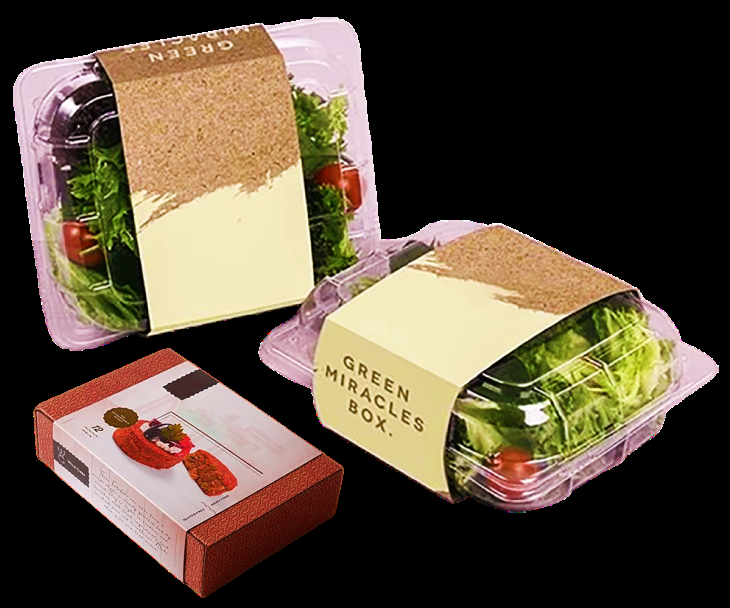Food Packaging Sleeves are a type of wrapper or cover used to package various food products. They play a crucial role in preserving the freshness of food, providing information, and enhancing the visual appeal of the product. This guide will explain what they are, their benefits, types, and how they are used in the food industry.
What Are Food Packaging Sleeves
They are thin, flexible covers made from materials like plastic, paper, or cardboard. So, they are designed to wrap around food items or containers, offering protection and branding. Unlike rigid packaging, sleeves are often used to provide a snug fit around food products, making them ideal for items like beverages, snacks, and prepared meals.
Benefits
- Protection
They protect the food inside from external elements such as moisture, dust, and contaminants. They help keep food fresh by maintaining its quality and extending its shelf life.
- Enhanced Shelf Life
By creating a barrier between the food and the environment, sleeves can help slow down spoilage. This is especially important for perishable items that need to stay fresh for a longer period.
- Branding and Marketing
Packaging sleeves offer a large surface area for branding and marketing. Hence, they can be printed with logos, product information, and promotional messages, helping to attract customers and build brand recognition.
- Convenience
Sleeves are easy to apply and remove, making them convenient for both manufacturers and consumers. They can be designed to include features like easy-open tabs or resealable closures for added convenience.
- Sustainability
Many food packaging sleeves are made from recyclable or biodegradable materials, making them a more environmentally friendly option compared to some other types of packaging. So, this helps businesses meet sustainability goals and appeal to eco-conscious consumers.
Types
Shrink Sleeves
Shrink sleeves are made from heat-sensitive plastic that shrinks when heat. When apply to a product, the sleeve conforms tightly to the shape of the container, providing a snug fit and a high-quality appearance. So, shrink sleeves are often used for bottles and cans.
Stretch Sleeves
Stretch sleeves are made from flexible plastic that stretches to fit around the product. Hence, they are commonly used for multi-pack items, like beverages or snacks, where the sleeve needs to stretch over the entire bundle.
Paper Sleeves
Paper sleeves are made from paper or cardboard and are often used for items like coffee cups or snack boxes. They can be print with various designs and are often used for their eco-friendly properties.
Folded Sleeves
Folded sleeves are pre-form and fold around the product. So, they are commonly used for packaged foods like sandwiches or pastries. however, these sleeves are easy to apply and provide a secure fit around the product.
Multi-Pack Sleeves
Multi-pack sleeves are used to group multiple products together. Hence, they can be made from plastic or paper and are designed to hold several items in a single package. This type of sleeve is often used for bulk items or promotional bundles.
How Food Packaging Sleeves Are Made
- Material Selection
The process begins with choosing the right material for the sleeve. Options include plastics like PVC or PET, as well as paper and cardboard. So, the choice depends on the type of food, desired shelf life, and environmental considerations.
- Design and Printing
Once the material is selected, the design is created. This includes artwork, logos, and product information. The design is then printed onto the material using techniques like flexographic or digital printing.
- Cutting and Shaping
After printing, the material is cut and shape into the desire sleeve format. This step involves precise measurements to ensure that the sleeve fits properly around the product.
- Application
The sleeves are then applied to the food products. For shrink sleeves, this involves heating the sleeve to make it shrink and conform to the product. For stretch sleeves, the material is stretched over the product and sealed.
- Quality Control
Before the sleeves are used, they undergo a quality control process. This includes checking for proper fit, print quality, and overall durability to ensure that the sleeves meet the required standards.
Choosing the Right Food Packaging Sleeve
Consider the Product
Choose a sleeve that fits the shape and size of your product. Different types of sleeves are suitable for different types of food items, so ensure that you select one that provides the best fit and protection.
Think About Branding
If branding is important, opt for a sleeve that offers ample space for custom printing. Hence, this can help increase visibility and attract customers. Consider how the sleeve design aligns with your brand’s image.
Assess Environmental Impact
If sustainability is a priority, look for sleeves made from recyclable or biodegradable materials. So, this choice can help reduce your environmental footprint and appeal to eco-conscious consumers.
Evaluate Cost and Efficiency
Consider your budget and the efficiency of the packaging process. Some types of sleeves, like shrink sleeves, may require special equipment for application. Ensure that the sleeve you choose fits within your budget and production capabilities.
Check for Convenience Features
Look for sleeves with features that enhance convenience for consumers, such as easy-open tabs or resealable closures. These features can add value to your product and improve the customer experience.
Conclusion
Food packaging sleeves are a versatile and important component of food packaging. They offer protection, extend shelf life, and provide valuable space for branding and marketing. With various types and materials available, businesses can choose the right sleeve to meet their needs, whether for individual items or multi-packs. Partner with Canadian Packaging Companies to ensure high-quality, locally sourced materials for your products.



More Stories
Advantages of Using Virtual Offices for GST Registration
Double Soap Dish: Space-Saving Bathroom Solution
Why Custom Printed Freezer Paper is the Secret Ingredient for Your Food Storage Needs?